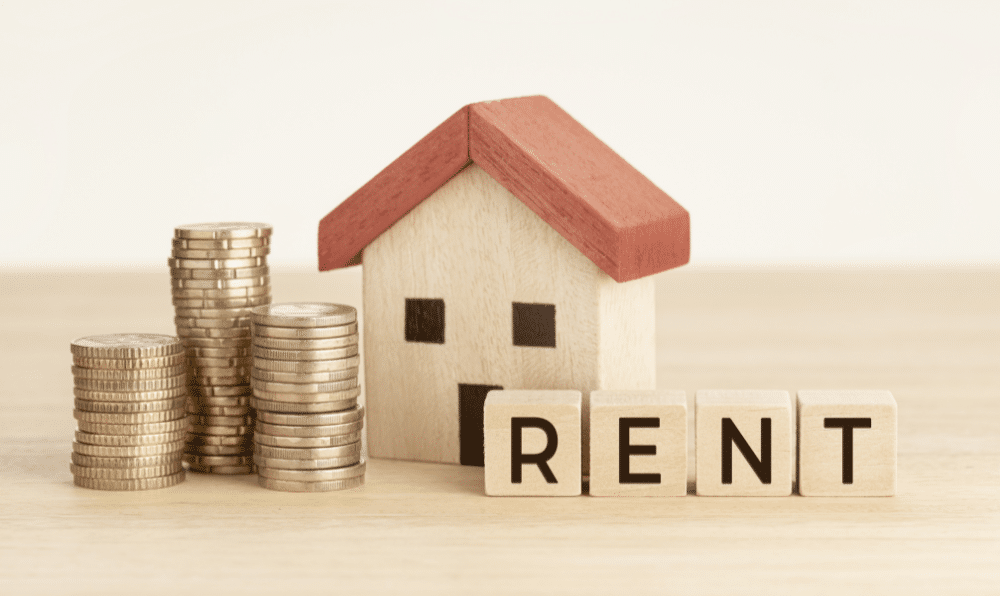
Table of Contents
Financial Implications That Come With Buying vs Renting a Home
When deciding between buying vs renting a home, it’s essential to consider the financial prerequisites involved. Buying a home requires a substantial initial investment such as a down payment, which generally ranges from 3.5% to 20% of the home’s purchase price. In contrast, renting often involves a security deposit, typically equal to one month’s rent, which is significantly lower in upfront cost compared to the down payment required when buying.
Interest rates are also a crucial factor. Current mortgage rates influence monthly payments when buying a home. Stability in these rates can lead to predictable monthly expenses similar to rent payments, although homeowners are additionally responsible for property taxes and insurance. Renters aren’t tied to such obligations directly, though these costs can be indirectly incorporated into their monthly rent.
Homeowners face maintenance costs and unexpected repairs—challenges absent in the renting scenario where landlords cover such expenses. Annually, homeowners might allocate around 1% of their property’s value for maintenance. This contrasts with renters who generally have fewer maintenance worries and costs, enhancing their financial flexibility but without building equity or investment returns through property appreciation.
Homeowners may benefit financially in the long term as property values rise. This gain contrasts with renting, where payments do not invest in tangible assets. However, renters gain the flexibility to relocate without the financial and legal encumbrances of selling property.
Homeowners may be favored by potential tax benefits. They’re permitted to deduct mortgage interest and property taxes on their annual tax returns—a privilege unavailable to renters. Despite this, the actual benefit can vary based on individual financial circumstances, including the homeowner’s total deductions and income level.
Both paths also play out differently under varying economic conditions. Home values generally appreciate over time, but economic downturns can reverse this trend, leading to challenges in recovering house value investments or selling the property without loss. Renters typically avoid investment risk in real estate due to economic fluctuations but may face rental market volatility, potentially spurring sharp rent increases.
External factors like housing market trends and local economic conditions also intervene. Evaluating local real estate market conditions for indications of potential property value increases (or decreases) can guide one towards buying or continue renting.
Analyzing this decision involves a careful examination of not just budget fit today but potential economic conditions tomorrow and broader financial goals in the long run. Engaging with a financial advisor could provide further personalized insights to weigh these options effectively.
Lifestyle and Flexibility
Lifestyle goals and personal preferences weigh heavily when deciding between buying vs renting. For many, the prospect of relocating for career opportunities or preferring a nomadic lifestyle makes renting an attractive choice. The lesser commitment to a physical location and the absence of the selling process allows for adaptability to new opportunities. Renting can provide the freedom to explore, best suited for those whose jobs require frequent relocation.
On the contrary, for those with established careers or family plans, buying a home corresponds well with laying down roots and creating long-term community ties. Homeownership permits creating a permanent personal sanctuary. One can personalize spaces without needing permission from a landlord—a level of customization that planting deep personal and family roots demands.
Maintenance obligations also diverge significantly between renting and owning.
If dealing with plumbing or HVAC issues causes dread, rental living has its perks. Maintenance and repairs are largely the responsibility of landlords, simplifying renters’ lives but stripping them from deeper engagement with their living space. Homeowners, albeit loaded with the task of upkeep, relish the control they hold over their domain, offering a customized living environment and potentially enhancing the property’s value.
The commitment level required by homeownership stretches beyond interior design freedom. Entering the domain of real estate ownership is accepting responsibility for all contingencies—whether financial, such as the sudden need for a significant repair, or lifestyle-related, such as remaining in one location long enough to make the investment worthwhile.
Each living situation calls to different visions of stability, freedom, and growth. The flexible renter can follow job offers or whims to new cities with a month’s notice; the proud homeowner can raise children in a familiar neighborhood. Each path holds merit, amplifying the importance of aligning with singular life aspirations, job security expectations, and personal convenience preferences.
Long-Term Financial Growth
Building equity through homeownership ranks highly in long-term financial strategies for many individuals. When monthly mortgage payments are made, a portion reduces the loan’s principal rather than merely covering interest—this shifts a homeowner from paying rent to paying into an asset they partly own over time. As more of the home is owned outright, equity increases, serving as a pathway to accumulate wealth. The eventual potential to fully own a valuable asset that can later be sold or leveraged for other financial needs underscores the tangible economic benefits inaccessible to renters.
Additionally, as home equity rises, property value appreciation further enhances financial growth. In well-chosen locales with strong market demand and limited supply, homes traditionally appreciate over the years. This ascent in value frequently outpaces inflation and provides homeowners with an asset that is likely to garner a substantial return on investment when sold. The longevity of homeownership, thus, relates to housing security and robust investments that can potentially yield significant financial benefits upon resale.
However, these favorable scenarios hinge upon market conditions, which are susceptible to fluctuations. Economic downturns, shifts in local employment rates, or regional developments can adversely affect property values. Such downturns can render homeowners ‘negative equity,’ where the mortgage owed surpasses the home’s worth—a risk absent in the renting scenario.
In contrast, long-term renters benefit from greater predictability in monthly housing expenses, particularly if rent controls are in effect. Freed from the expenses related to major repairs and maintenance typically associated with homeownership, renters can potentially allocate funds towards alternative investments which may also yield returns. However, unlike homeowners, renters don’t benefit from the growing housing investment—money spent on rent pays for a place to live but doesn’t build equity or contribute to personal asset accumulation.
The dichotomy between buying vs renting, particularly viewed through the lens of long-term financial growth, highlights a mix of risk and reward. Homeownership offers the avenue for financial advancement through equity and property value growth but carries the weight of financial liability and reliance on beneficial market trends. Conversely, renting provides a relatively more predictable financial path, less financial growth via property investment but with opportunities for capital distribution into other potentially lucrative ventures. These distinctions frame the debate on whether to rent or buy, pointing toward each individual’s risk tolerance, financial goals, and life milestones as crucial determinants in this significant decision.
Still Wondering About Buying vs Renting? Contact Us For Help!
Still debating whether to buy or rent in Las Vegas? Let Top Tier Realty guide you through the decision-making process. Our expert team understands the nuances of the Las Vegas real estate market and can provide personalized advice tailored to your needs. Whether you’re weighing the financial implications, assessing your long-term goals, or simply unsure where to start, we’re here to help. Contact us today for a consultation and take the next step towards finding your ideal home in Las Vegas!
